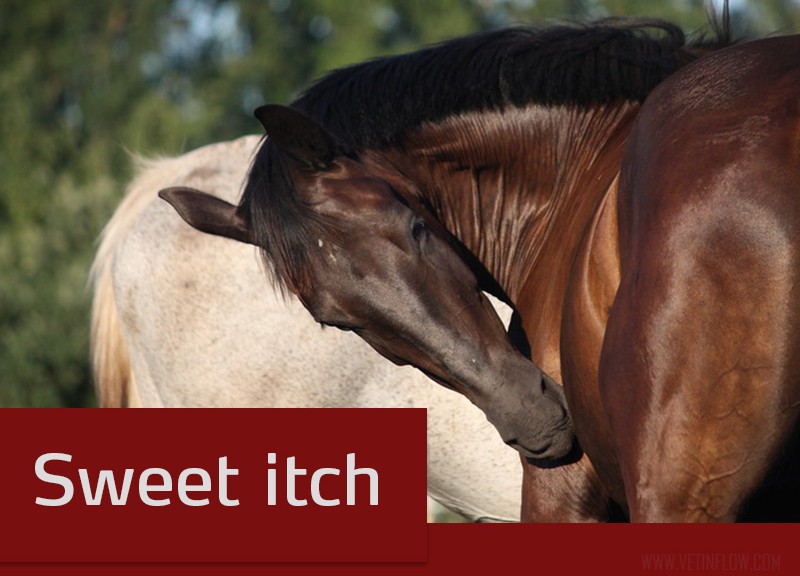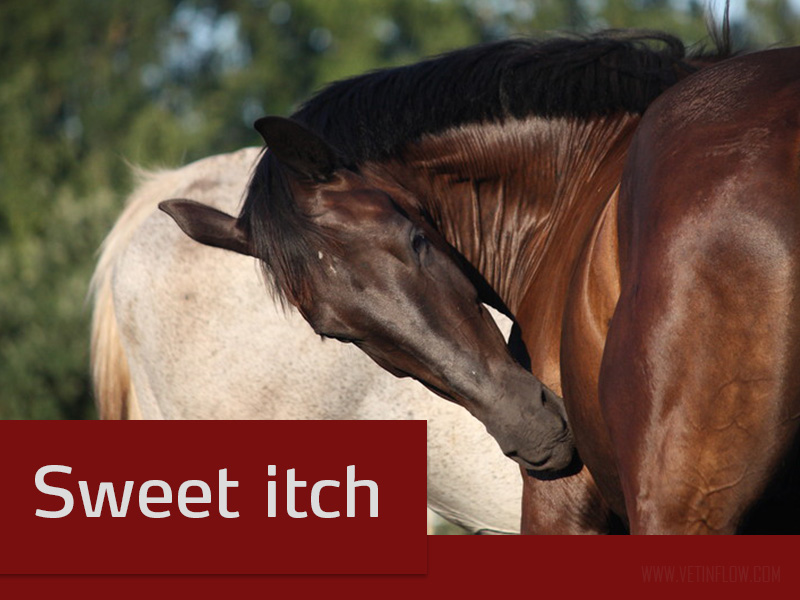Equine sweet itch is a seasonal skin disease of horses and ponies caused by an allergic reaction to Culicoides midge bites. Affected horses feel extremely itchy, restless and uncomfortable, intensely rubbing and chewing the areas where they were bitten. Over time this can lead to hair loss, crusting, scaling, skin thickening and damage to the skin, which then becomes an open door for secondary infections.
All breeds can be affected and there is evidence that susceptibility to the disease is inherited. The saliva of the midge causes an “over the top”type I hypersensitivity reaction in which sensitised mast cells release histamine, resulting in swelling and intense itching. The more often a horse is bitten by midges, the worse the reaction becomes. The most commonly affected areas are usually the tail head, under the mane and underneath the horses’ abdomen.
The midges are active from March to October but their numbers peak from May to September.
A few changes in your horse’s daily management routine can be very helpful to deal with this problem, as well as using sweet itch rugs in combination with insect repellents, insecticides, oils and greases.
Sweet itch rugs cover more of the horse’s body and it’s important to keep in mind that the mesh size needs to be extremely small because midges are tiny. The best way to protect your horse’s face is to use a horse mask. Midges will often congregate on the moist areas around the horse’s eyes and forehead, and a fine mesh face and ear cover, attached by velcro under the chin is very effective in keeping them away.
Due to their small size it is very hard for midges to bite through layers of oil which means that oils such as citronella oil, garlic oil and tea tree oils can be helpful to provide some protection. There are many types of products that combine repellents, insecticides and oils available. Find one that suits you and your horse best.
If possible increase airflow by using a fan in the stable and use a very fine fly screen over the stable door.
Since midges are most active at dawn and dusk, stable the horse from 4 pm until 8 am in the summer months. Consider moving your horse away from wooded and wet areas to avoid as many moist midge breeding grounds as possible.
If you notice your horse is itching more than usual consult your veterinary surgeon as it will be needed to rule out other possible causes of itching. Your vet can also prescribe medications that can help ease your horse’s symptoms and provide some relief to suffering horses, while additional precautions are taken. Ask your vet for advice.
Would you like to know more about horses? Check our Equine Courses:

